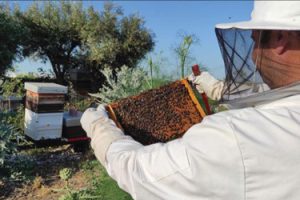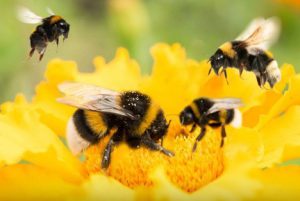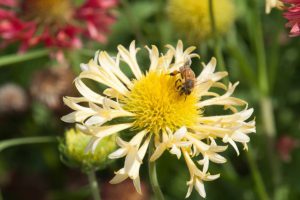70 per cent of local beehives destroyed by oriental hornets on Malta
Pollination of food crops being hit hard

Hornets are causing substantial damage to the bees and honey production.
Oriental hornets have been responsible for the decimation of 70% of Maltese beehives, which will result in problems with honey production and potential repercussions on farming.
Apiarists arrived at the figure of destruction after comparing data and information about the havoc that hornets had wreaked on their hives from the beginning of summer until the end of September.
The loss of so many bees has far-reaching implications for the local honey industry as well as the agricultural sector at large, according to Mark Psaila, secretary of the Malta Beekeepers Association. He was speaking following a meeting on Monday between all the beekeeping associations in the country.
“Apart from the loss of honey, the bees’ important role as pollinators will have an impact on local fruit trees and other indigenous flora for which the bee is integral in pollinating,” he said, adding that, as a result, very little honey will be produced by apiarists next year.
“There will definitely be a loss of honey production as beekeepers are going to instead focus on rebuilding their colonies next year.”
While the oriental hornets are indigenous to Malta, a recent boom in the population has seen a drastic increase in their encroachment on urban spaces.
While bees try to protect themselves from hornets, their numbers have grown to such an extent that the bees, particularly young nests, are unable to stave off a hornet attack.
The hornets are known to target hives both to get at the honey and larvae within and also to feast on the adult bees themselves.
Psaila said the three local beekeeping associations are working closely with local authorities to develop an action plan and reduce the local hornet population.
“To clarify, we do not intend to eradicate the hornets as they are indigenous and we believe in having strong biodiversity,” Psaila said.
“However, they are causing substantial damage to the bees and we are working on a plan to reduce the size of the population.”
The action plan is expected to be finalised in the coming months, he said.
Psaila added that public participation could be integral to saving the bees.
“The public can be immensely beneficial in helping us to trace nests and catch hornet queens,” he said.
“Now in the winter months you will notice far less hornets, since they will hibernate when it gets colder.
“Once it gets warmer, the queen hornets will emerge from hibernation and start repopulating their nests, so the best way to tackle the problem would be to catch the queens before they have an opportunity to do that or before the nests have grown too large, possibly around March or April.”
Beekeeper Mario Axisa told Times of Malta that just two of his 15 hives had survived as hornets ravaged the bees before his own eyes.
“It was a total massacre. I would sometimes go to inspect a hive and get swarmed by 30 to 40 hornets… I’d have no choice but to leave,” he said.
“I tried to put in a net that prevented the hornets from getting inside the box but they would just wait outside and attack the bees when they came out,” he said.
He said the loss of so many bees was a worrying sign.
Malcolm Borg, coordinator of Għaqda Bdiewa Attivi, said the decline of bees could also eventually see the profit margins of local farmers take a hit.
“Essentially, any tree that flowers, not just sweet fruit like strawberries, peaches or plums, but even tomatoes, pumpkins and marrows require bees to pollinate them,” Borg noted.
“If the population has declined by 70%, then I think we can expect to see an impact in farming.
“We’ve already received initial reports about problems with this year’s yield of marrows, so we are expecting that this will have an impact on the yield and, if it does, then it could, of course, have an impact on farmers’ profit margins,” he added.
“This is a prediction based on what impact a decline could have on the yield but if the decline in bees has been this drastic, then there is a possibility that we should expect an impact.”
We are here to share current happenings in the bee industry. Bee Culture gathers and shares articles published by outside sources. For more information about this specific article, please visit the original publish source: 70 per cent of local beehives destroyed by oriental hornets (timesofmalta.com)





